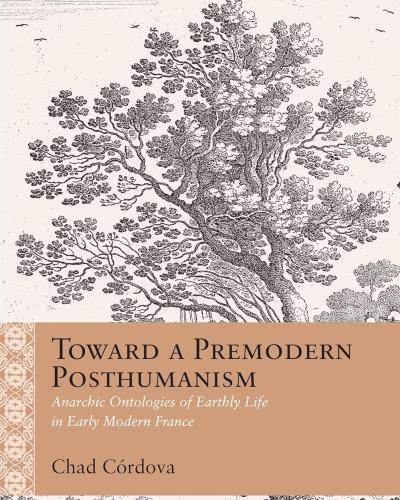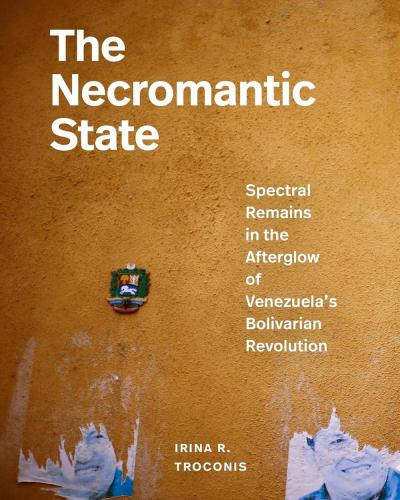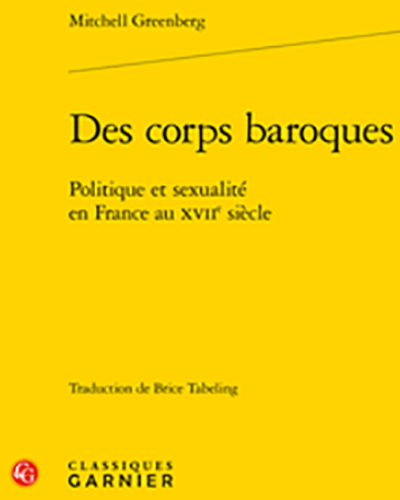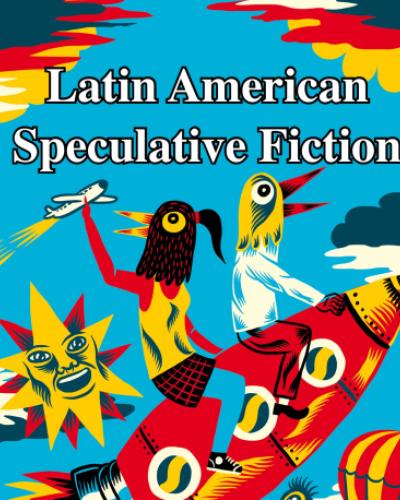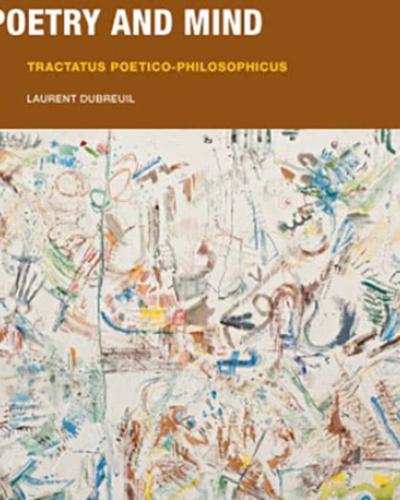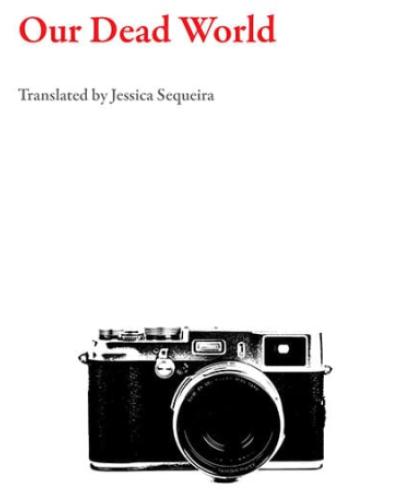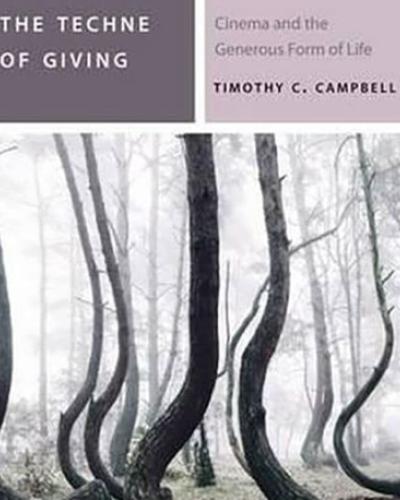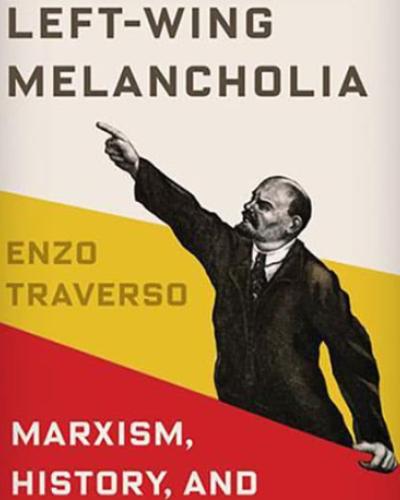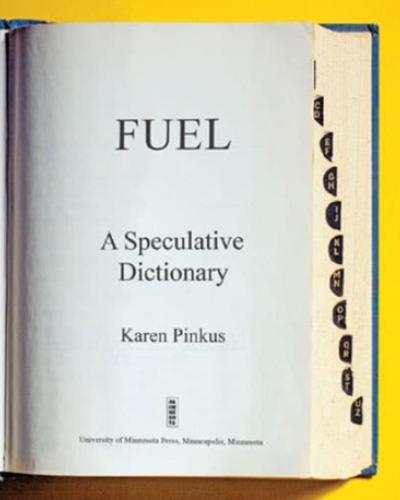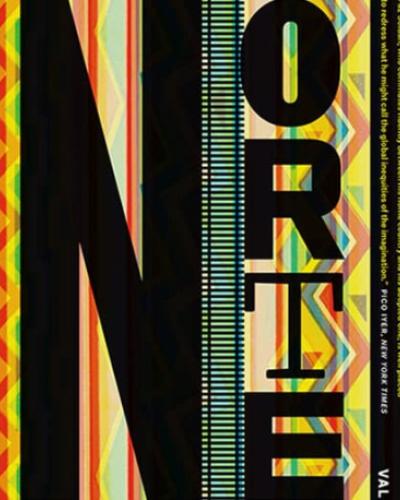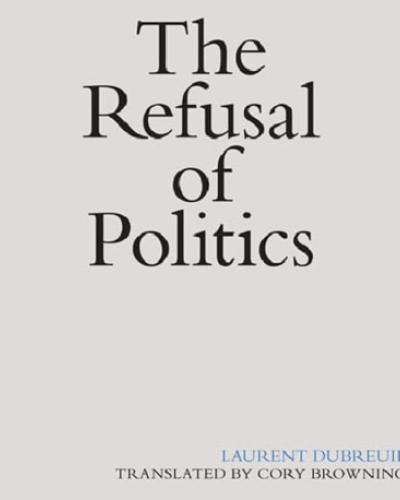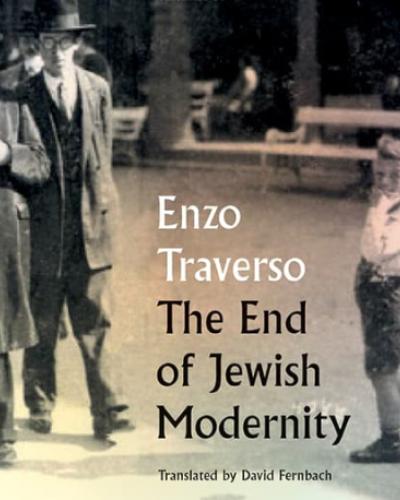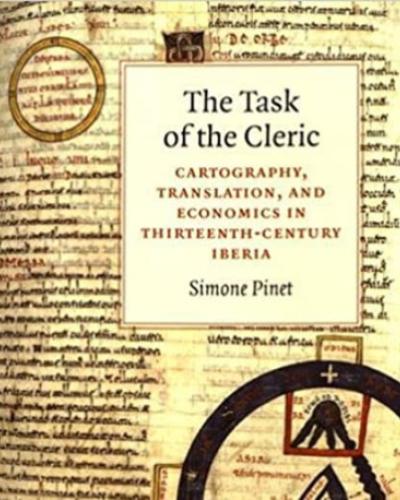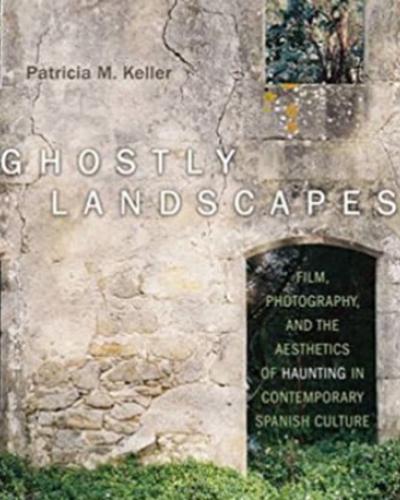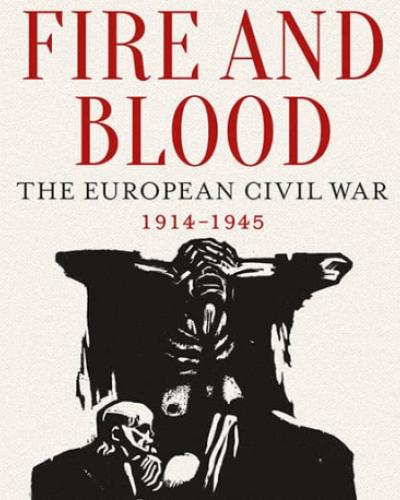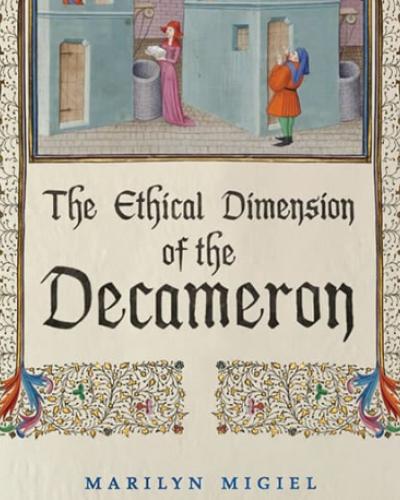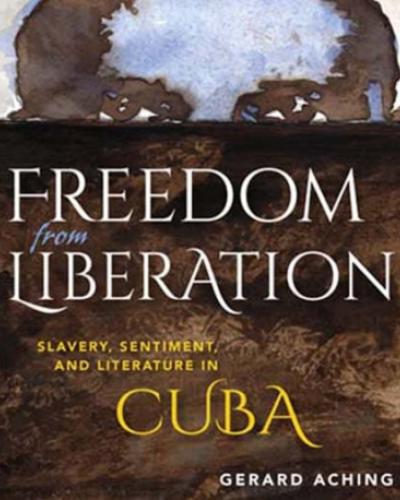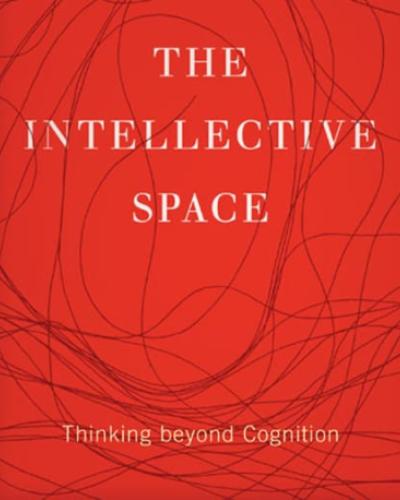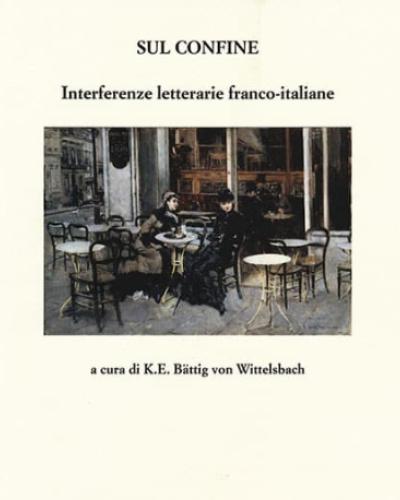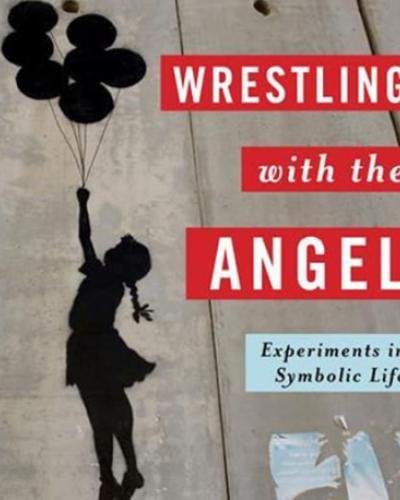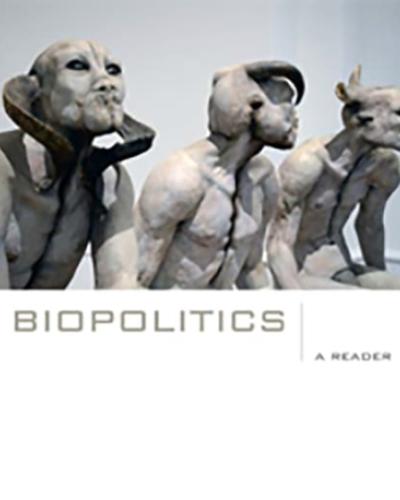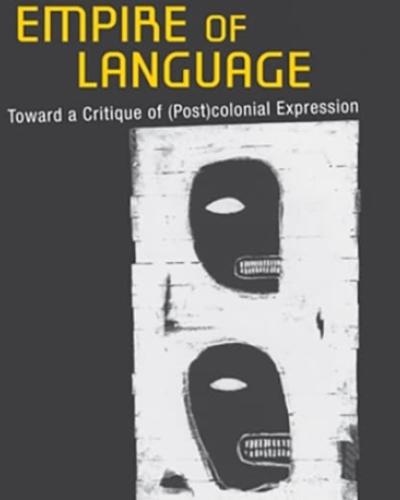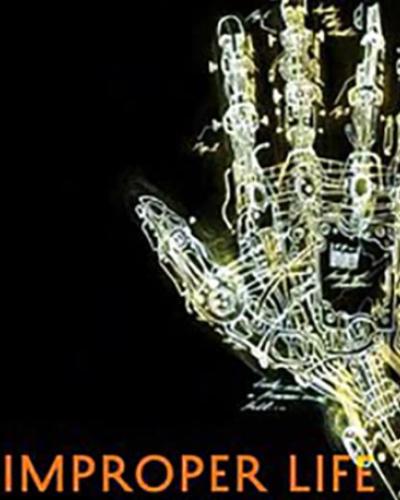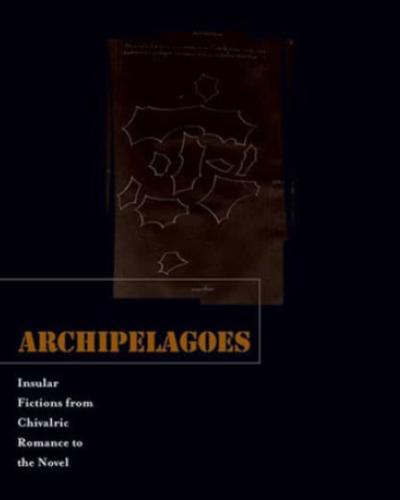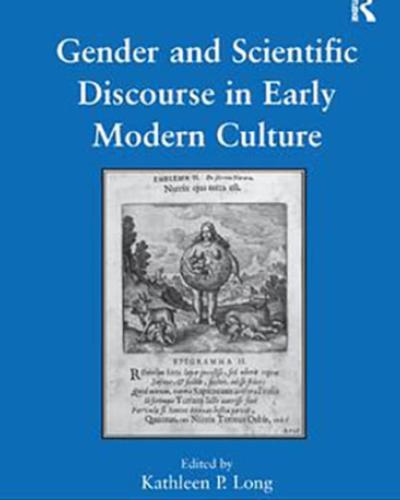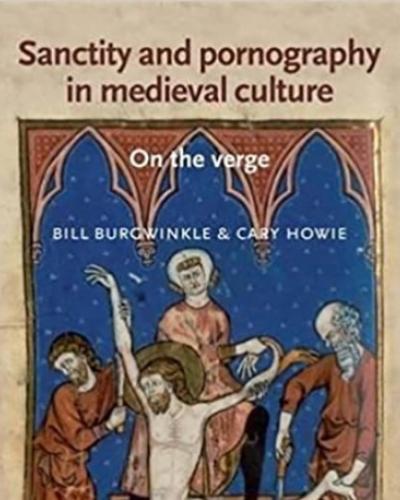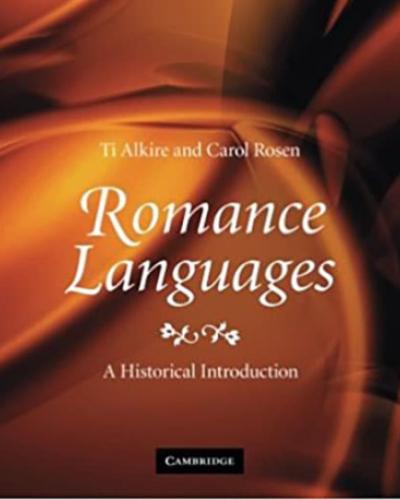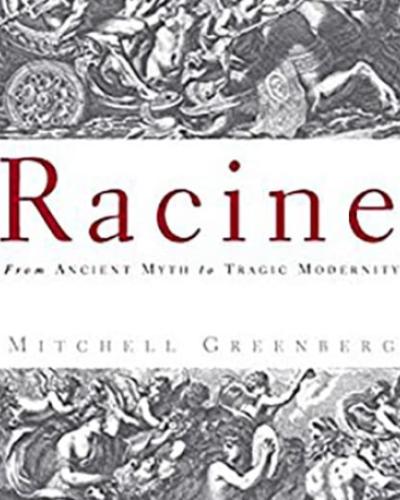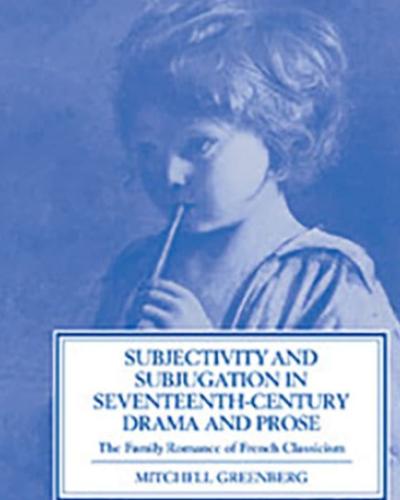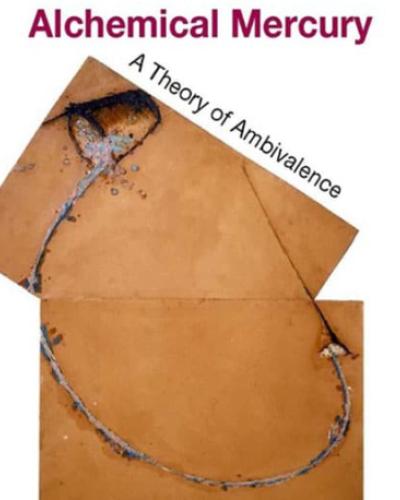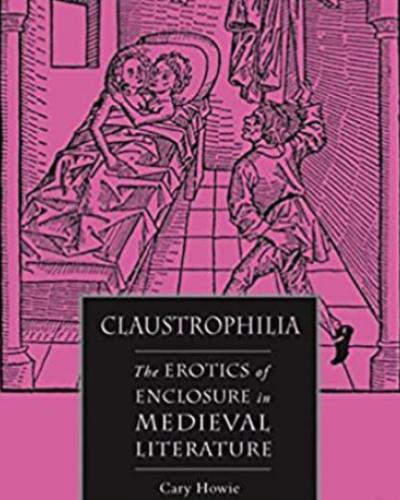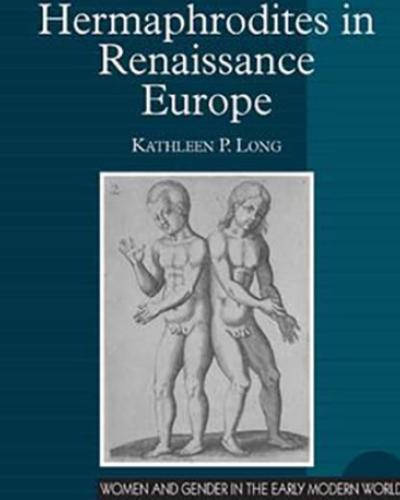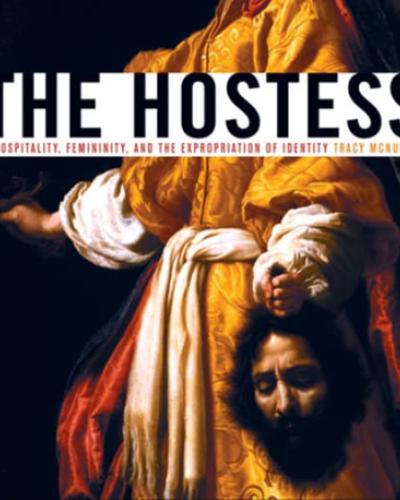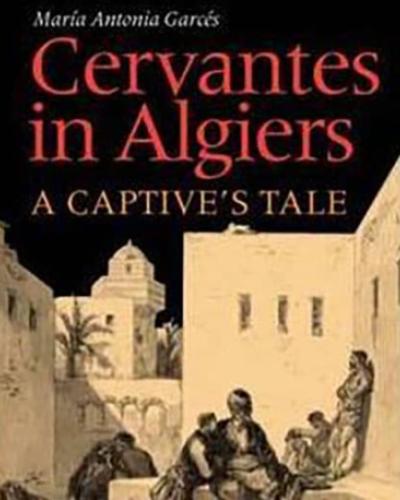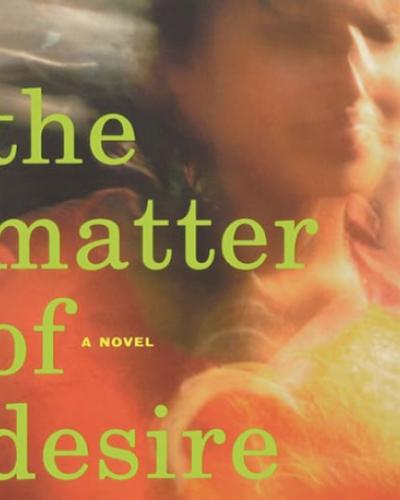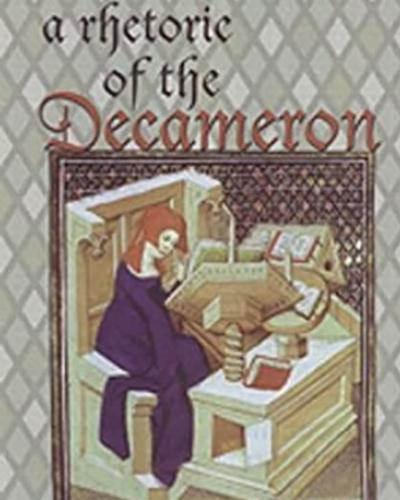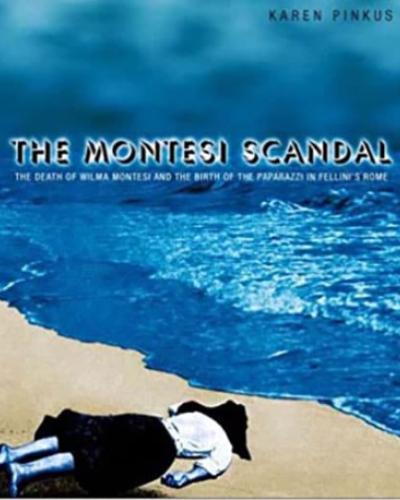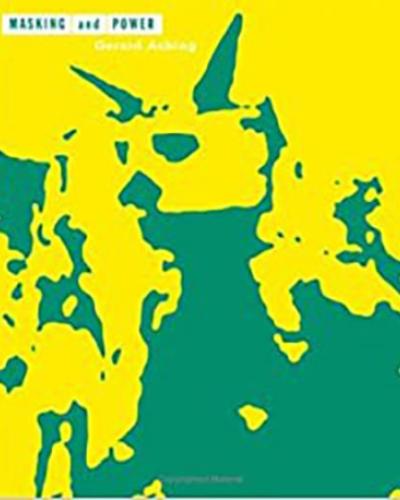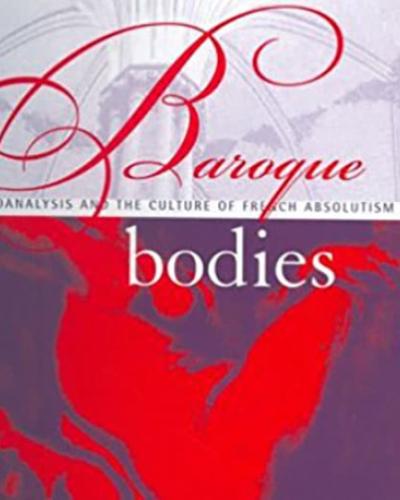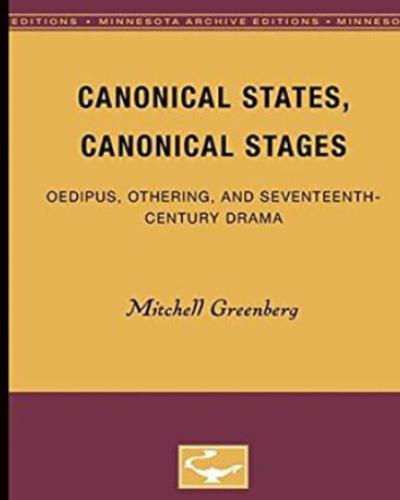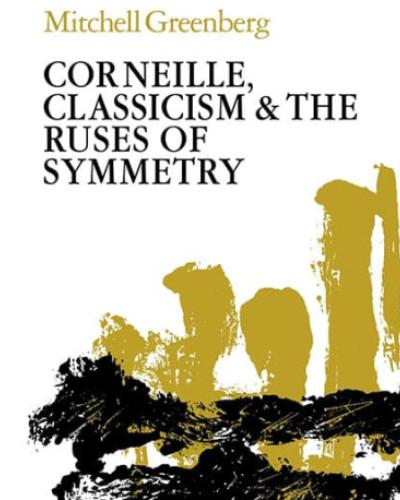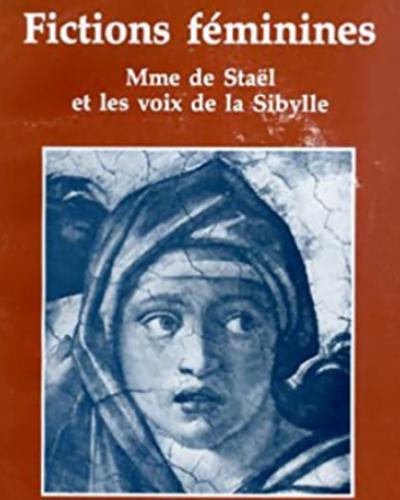Toward a Premodern Posthumanism Anarchic Ontologies of Earthly Life in Early Modern France
What good is aesthetics in a time of ecological crisis? Toward a Premodern Posthumanism: Anarchic Ontologies of Earthly Life in Early Modern France shows that philosophical aesthetics contains unheeded potentialities for challenging the ontological subjection of nature to the human subject. Drawing on deconstructive, ecological, and biopolitical thought, Chad Córdova uncovers in aesthetics something irreducible to humanist metaphysics: an account of how beings emerge and are interrelated, responsive, and even response-able without reason or why.
This anarchic and atelic ontology, recovered from Kant, becomes the guiding thread for a new, premodern trajectory of posthumanism. Charting a path from Aristotle to Heidegger to today’s plant-thinking, with new readings of Montaigne, Pascal, Diderot, Rousseau, and others along the way, this capacious study reveals the untimely relevance of pre-1800 practices of writing, science, and art. Enacting a multitemporal mode of reading, Córdova offers a defense and illustration of the importance of returning to early modern texts as a way to rethink nature, art, ethics, and politics in a time when these concepts are in flux and more contentious than ever.
The Necromantic State: Spectral Remains in the Afterglow of Venezuela's Bolivarian Revolution
In the spring of 2013, televisions across Venezuela announced the death of then-president Hugo Chávez, leader of the Bolivarian Revolution and key political actor in Latin America’s “turn to the left.” Chávez’s death, however, was not the end of Chávez’s life. In The Necromantic State, Irina R. Troconis examines how Chávez, as a “specter,” has lingered in Venezuela’s public, private, and digital spaces. Focusing on contemporary Venezuela and drawing from a diverse corpus that includes tattoos, toys, memes, graffiti, and a hologram haunting the streets of downtown Caracas, Troconis contends that, in moments of failed transitions, political tensions, and crises of legitimacy, the state brings the dead back to life to negotiate the terms of its survival. By showing how this necromantic performance enables the state’s material and visual manifestations in public and private spaces, Troconis untangles a sociopolitical moment in which the ghostly acts as the affective, social, and political force that grounds state authority and ensures the preservation of the status quo, as it circumscribes acts of political imagination and limits popular resistance.
Subjunctive Aesthetics: Mexican Cultural Production in the Era of Climate Change
During the twenty-first century, Mexico has escalated extractive concessions at the same time that it has positioned itself as an international leader in the fight against climate change. Cultural production emergent from this contradiction frames this impasse as a crisis of imagination. Subjunctive Aesthetics studies how contemporary writers, filmmakers, and visual artists grapple with the threat that climate change and extractivist policies pose to Mexico's present and future. It explores how artists rise to the challenge of envisioning alternative forms of territoriality (ways of being in relation to the environment) through strategies ranging from rewriting to counterfactual speculation.
Whereas ecocritical studies have often focused on art's evidentiary role—its ability to visualize and prove the urgency of environmental damage—author Carolyn Fornoff argues that what unites the artists under consideration is their use of more hypothetical, uncertain representational modes, or "subjunctive aesthetics." In English, the subjunctive is a grammatical mode that articulates the imagined, desired, and possible. In the Spanish language, it is even more widely used to express doubts, denials, value judgments, and emotions. Each chapter of Subjunctive Aesthetics takes up one of these modalities to examine how Mexican artists, writers, and filmmakers activate approaches to the planet not just as it is, but as it could be or should be.
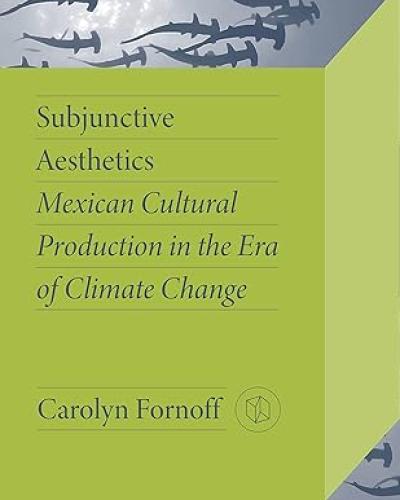
Subsurface
Long seen as a realm of mystery and possibility, the subsurface beneath our feet has taken on all-too-real import in the era of climate change. Can reading narratives of the past that take imaginative leaps under the surface better attune us to our present knowledge of a warming planet?
In Subsurface, Karen Pinkus looks below the surface of texts by Edgar Allan Poe, Arthur Conan Doyle, George Sand, E. T. A. Hoffmann, and Jules Verne to find the buried origins of capitalist fantasies in which humans take what they want from the earth. Putting such texts into conversation with narrative theory, critical theory, geology, and climate policy, she shows that the subsurface has been, in our past, a place of myth and stories of male voyages down to gain knowledge—but it is also now the realm of fossil fuels. How do these two modes intertwine?
A highly original take on evocative terms such as extraction, burial, fossils, deep time, and speculative futurity, Subsurface questions the certainty of comfortable narrative arcs. It asks us to read literature with and against the figure of the geological column, with and against fossil fuels and the emissions warming our planet. As we see our former selves move into the distance, what new modes of imagination might we summon?

Blood Novels: Gender, Caste and Race in Spanish Realism
In the late nineteenth century, Spain’s most prominent writers – Juan Valera, Leopoldo Alas, and Benito Pérez Galdós – made blood a crucial feature of their fiction.
Blood Novels examines the cultural and literary significance of blood, unsettling the dominant assumption of the period that blood no longer played a decisive role in social hierarchies. By examining fictional works through the rubric of "blood novels," Julia H. Chang identifies a shared fascination with blood that probes the limits of realism through blood’s dual nature of matter and metaphor. Situating the literature within broader cultural and theoretical debates, Blood Novels attends to the aesthetic contours of material blood and in particular how bleeding is inflected by gender, caste, and race.
Critically engaging with feminist theory, theories of race and whiteness, literary criticism, and medical literature, this innovative study makes a case for treating blood as a critical analytic tool that not only sheds new light on Spanish realism but, more broadly, challenges our understanding of gendered and racialized embodiment in Spain.
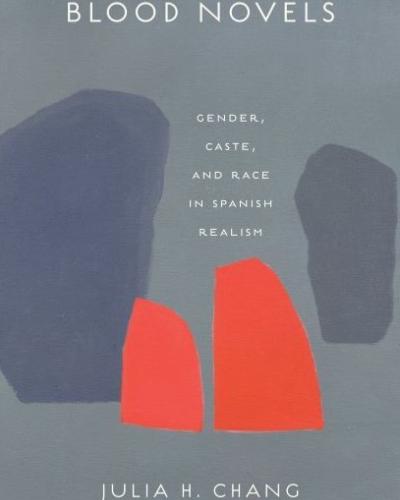
Ustedes brillan en lo oscuro (You Glow in the Dark)
From the publisher (Spain):
Los cuentos de Liliana Colanzi exploran magistralmente diversas formas de narrar el tiempo, como el viaje geológico en una cueva, la búsqueda de las raíces históricas de la explotación del caucho en las ruinas de un pueblo amazónico, o la temporalidad dislocada de una colonia religiosa en la que sus personajes ansían deshacerse de las prohibiciones que los encallan en el pasado. En este libro la radiación es un agente invisible que afecta a los jóvenes que viven cerca de una central nuclear andina y a los recolectores de chatarra de una ciudad brasileña. Ustedes brillan en lo oscuro, libro galardonado con el Premio Ribera del Duero, crea espacios enrarecidos con una escritura enigmática y sensorial.
El jurado, del que formaron parte los escritores Marta Sanz, Cristian Crusat y presidido por Rosa Montero, resaltó que se trata de una obra de gran originalidad y potencia expresiva, que construye mundos extraños aunando las claves de ciencia ficción y realismo para llevar a cabo una crítica que nos sitúa ante el desconsuelo e inquietud de la vida.
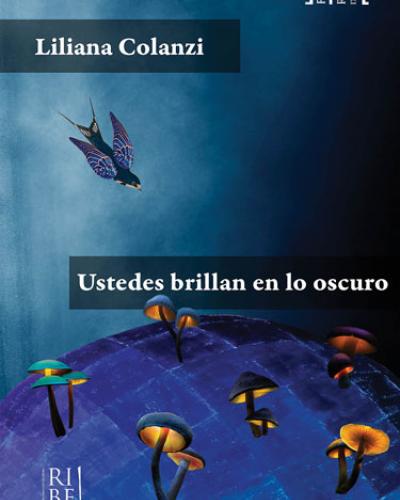
La Mirada de las Plantas
From the publisher:
In this novel, the extractivist past and present of the Amazon intermingle within the framework of a disturbing environment. Fleeing the scandal, Rai, the son of a beauty pageant entrepreneur in decline, travels to Santa Rosa–a small Bolivian town on the border with Brazil, in the Amazon–, to work in a laboratory with the enigmatic doctor Dunn, who is mourning the disappearance of his son and daughter: two years ago his estranged wife ran away with them, not to be seen again. Doctor Dunn is in charge of a controversial experiment that involves alita del cielo–a hallucinogenic plant traditionally used in indigenous communities–and virtual reality. A Brazilian virtual reality company, Tupi VR, wants to offer the experience of “being drugged without using drugs:” replicating through virtual reality the experience of taking different sorts of drugs–LSD, mushrooms, alita del cielo.
As part of the experiment, the volunteers–Indigenous and low-income people from Santa Rosa and other border towns in the Brazilian side–, are given a dosage of alita del cielo, and, under its effects, they have to report on their visions so the engineers of the company can try to replicate them through virtual reality. The volunteers are given strong dosages and experiment bad trips, especially Alvarenga, a member of an Indigenous community which was kept under a state of forced indenture in the jungle, and who able to flee from his exploiters: he reports seen visions of the Giant, the exploiters’ foreman; he even reports seeing him awake. The experiment begins to get out of hand, as it seems that the hallucinations are not only related to individual experiences but to the traumatic past of abuse and extractivism in the Amazon (Santa Rosa was once the center of the rubber trade in the region.) Meanwhile, Rai, who was supposed to be in charge of the volunteers, gets hooked on alita del cielo as well, as starts seeing visions awake. He discovers that seeing visions awake, a sort of trip that never ends, is an illness reported in the region by some people who overdose on alita and known as “the Disorder.”
The doctors and volunteers who are part of the experiment, isolated in that border place that was once the center of the rubber trade in the region, wander around through a fragile psychic zone, where the boundaries between sanity and madness are blurred. The dark side of Rai is revealed–he doesn’t respect the privacy of his patients, he is prone to film them and create deepfakes with the images–, as well as Dunn’s real objectives: through virtual reality, he wants to understand what happened to his son and daughter, and through alita del cielo, he intentionally wants to see if he can provoke the “Disorder,” to have his son and daughter with him all the time as permanent visions. Tupi VR also has its own objectives: virtual reality is a way to enter the clients’ unconscious so it can later offer them for sale their deepest desires, some unknown to them.
The novel explores the very nature of reality as revealed by plants and technology, while at the same time connecting different forms of extraction today–the riches of the forest, our most private desires–, with the traumatic past of abuse and exploitation in the Amazon. Edmundo Paz Soldán creates a mesmerizing narrative in which the jungle becomes a space for fantasy and experimentation, reality is a virtual construction, the company that manages the laboratory knows more about the volunteers than the volunteers themselves, and nature reveals itself as the most artificial of our constructions. The novel brilliantly puts together a wide range of literary motifs to ask urgent questions about our time, in which the seductive power of screens ensnares us with its promises of satisfaction and fulfillment, and our reckless actions destabilize the ecosystems where we live.
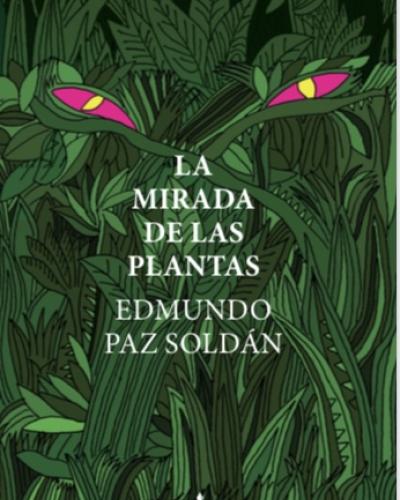
Veronica Franco in Dialogue
From the publisher:
Since the late twentieth century, the Venetian courtesan Veronica Franco has been viewed as a triumphant proto-feminist icon: a woman who celebrated her sexuality, an outspoken champion of women and their worth, and an important intellectual and cultural presence in sixteenth-century Venice.
In Veronica Franco in Dialogue, Marilyn Migiel provides a nuanced account of Franco’s rhetorical strategies through a close analysis of her literary work. Focusing on the first fourteen poems in the Terze rime, a collection of Franco’s poems published in 1575, Migiel looks specifically at back-and-forth exchanges between Franco and an unknown male author. Migiel argues that in order to better understand what Franco is doing in the poetic collection, it is essential to understand how she constructs her identity as author, lover, and sex worker in relation to this unknown male author.
Veronica Franco in Dialogue accounts for the moments of ambivalence, uncertainty, and indirectness in Franco’s poetry, as well as the polemicism and assertions of triumph. In doing so, it asks readers to consider their ideological investments in the stories we tell about early modern female authors and their cultural production.
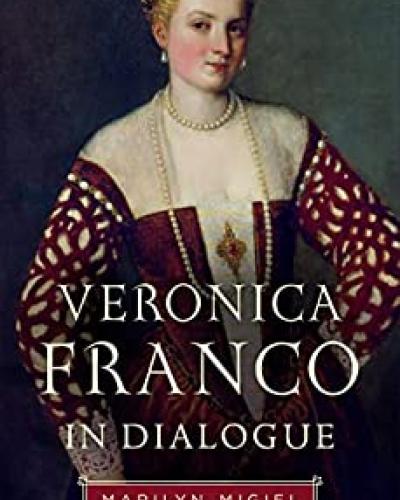
Pushing Past the Human in Latin American Cinema
From the publisher:
Pushing Past the Human in Latin American Cinema brings together fourteen scholars to analyze Latin American cinema in dialogue with recent theories of posthumanism and ecocriticism. Together they grapple with how Latin American filmmakers have attempted to "push past the human," and destabilize the myth of anthropocentric exceptionalism that has historically been privileged by cinema and has led to the current climate crisis. While some chapters question the very nature of this enterprise—whether cinema should or even could actualize such a maneuver beyond the human—others signal the ways in which the category of the "human" itself is interrogated by Latin American cinema, revealed to be a fiction that excludes more than it unifies. This volume explores how the moving image reinforces or contests the division between human and nonhuman, and troubles the settler epistemic partition of culture and nature that is at the core of the climate crisis. As the first volume to specifically address how such questions are staged by Latin American cinema, this book brings together analysis of films that respond to environmental degradation, as well as those that articulate a posthumanist ethos that blurs the line between species.
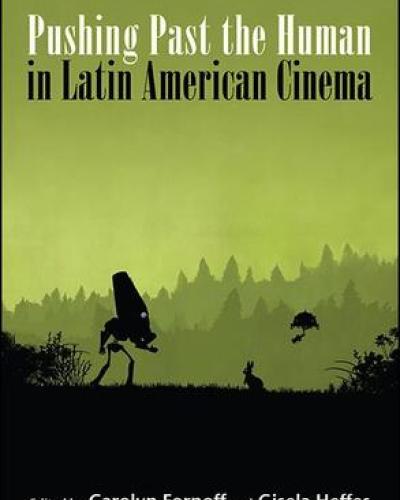
Timescales: Thinking across Ecological Temporalities
From the publisher:
Humanists, scientists, and artists collaborate to address the disjunctive temporalities of ecological crisis.
This book contends that to represent and respond to crises wrought by climate change requires reframing time itself, making more visible the relationship between past, present, and future, and between a human life span and the planet’s. Timescales puts oceanographers, geophysicists, geologists, and anthropologists into conversation with literary scholars, art historians, and archaeologists to forge new intellectual spaces.

Transfiguring medievalism: Poetry, attention, and the mysteries of the body
Transfiguring Medievalism combines medieval literature, modern poetry and theology to explore how bodies, including literary bodies, can become apparent to the attentive eye as more than they first appear. Transfiguration, traditionally understood as the revelation of divinity in community, becomes a figure for those splendors, mundane and divine, that await within the read, lived and loved world. Bringing together medieval sources with modern lyric medievalism, the book argues for the porousness of time and flesh, not only through the accustomed cadences of scholarly argumentation but also through its own moments of poetic reflection. In this way, Augustine, Cassian, Bernard of Clairvaux, Dante, Boccaccio and the heroes of Old French narrative, no more or less than their modern lyric counterparts, come to light in new and newly complicated ways.
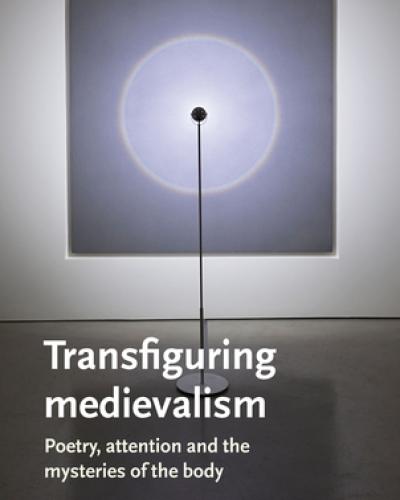
Clocking Out: The Machinery of Life in 1960s Italian Cinema
From the publisher, University of Minnesota Press:
An original reflection on Italy’s postwar boom considers potentials for resistance in today’s neoliberal (dis)order
Clocking Out challenges readers to think about labor, cinema, and machines as they are intertwined in complex ways in Italian cinema of the early ’60s. Drawing on critical theory and archival research, this book asks what kinds of fractures we might exploit for living otherwise, for resisting traditional narratives, and for anticapitalism.
"In this wonderfully inventive and beautifully written book, Karen Pinkus adopts a cinematic lens to capture the dynamism of cultural production and social life in early 1960s Italy. But the questions she investigates—about the transformations of work by technology, the relations between humans and machines, and the powers of cinema for social analysis—are just as urgent for understanding today’s social world." - Michael Hardt, coauthor of Assembly

Des corps baroques: Politique et sexualité en France au xviie siècle
From the publisher, Classiques Garnier:
Auteur littéraire: Mitchell Greenberg
Traducteur: Brice Tabeling
Résumé: S’attachant aux fantasmes du corps dans les structures épistémologiques du xviie siècle, cette œuvre associe Molière et Racine à l’abbé de Choisy, à Marie Guyart et aux deux textes fondateurs de la pornographie moderne pour renouveler notre compréhension de la littérature classique.
Paradoxa: Latin American Speculative Fiction
From the publisher:
Paradoxa, Volume 30, Latin American Speculative Fiction
Edited by Debra Ann Castillo & Liliana Colanzi
"Gathering emerging and established scholars, as well as distinguished Latin American writers, “Speculative Fiction in Latin America” (Paradoxa no. 30) provides the widest and most diverse group of reflections to date on its subject, by expanding traditional perspectives on science fiction into the larger world of speculative fiction. Engaging with contemporary approaches related to climate change and the Anthropocene, disability and illness, the material and the digital, this collection contributes to the understanding of speculative fiction in Latin America and globally through a combination of sophisticated theoretical engagements and exciting creative work."
Ignacio M. Sánchez Prado. Washington University in St Louis
"As the editors note in their introduction to this provocative issue of Paradoxa, embracing the challenge of Latin American speculative fiction requires us to abandon all the 'familiar landmarks' of our ways of thinking—about technology and progress, about embodiment and kinship, about connection and accountability across hemispheres, classes, ethnicities, and disciplines. An exciting combination of scholarly analysis and original fiction, this groundbreaking collection is a vital work."
Sherryl Vint. University of California at Riverside
"What is speculative fiction today? The attempt to take some of our most cherished conventions to their nightmarish conclusion, not in the future, but in a present that we fail to see. Based on that premise, this issue of Paradoxa shows, through the study of its genealogy, why speculative fiction is in its right a Latin American genre; because this is a place from which the consequences of our normality can be best seen. It also undertakes the challenge of displaying the ways in which our speculative fiction defies how we recount literary history, which is to say, how it threatens the order of things."
Yuri Herrera. Best translated book award for Signs Preceding the End of the World. Tulane University
Paradoxa publishes articles on genre literature—science fiction, horror, mysteries, children's literature, romance, comic studies, the fantastic, best sellers, the occult, westerns, oral literature, and more. Paradoxa was voted runner-up (among 72 entrants) in “Best New Journal of the Year,” (1996) by the Council of Editors of Learned Journals.
Poetry and Mind: Tractatus Poetico-Philosophicus
From the publisher:
What one cannot compute, one must poetize: this essay theorizes the extraordinary regimes of human mental experience by putting the emphasis on poetry. Poetry grants us the ability to move “beyond the limits of thought” and to explore the beyond of cognition. It teaches us to think differently. An elliptic response to Wittgenstein’s point of arrival in the Tractatus, this book is first and foremost an interdisciplinary study of poetry, drawing on literary theory, philosophy, and cognitive science. The work conducted on minds and brains over the last decades in psychology, artificial intelligence, or neuroscience cannot be ignored, if, as “humanists,” we are ever interested in the way we think. Thus, a constant dialogue with the positive examination of cognition serves to better situate the normal regimes of thought—and to underline the other mental possibilities that literature opens up. This essay shows that poetry—a very widespread and possibly universal phenomenon among humans—arises through syntactic structures, cognitive binding, and mental regulations; but that, in going through them, it also exceeds them. The best poems, then, are not only thought experiments but actual thinking experiments for the unthinkable. They expand the usual semantics of natural languages, they singularly deploy the rhetorical armature of speech. They tend to exceed their own algorithms, made of iterations and linguistic re-organizations. They are often reflexive, strange, cognitively dissonant. They provide detachable, movable, and livable significations to our selves. The literary scope of this book is more than “global:” it is uniquely broad and comparative, encompassing dozens of different traditions, oral or written, from all continents, from Ancient times to the contemporary era, with some thirty specific readings of texts, ranging from Sophocles to Gertrude Stein, from Wang Wei to Aimé Césaire, or from cuneiform tablet to rap music.
Our Dead World
A young woman suffers a mental breakdown because of her repressive and religious mother. A group of children is fascinated by the sudden death of a friend. A drug trafficking couple visits Paris at the same time as a psychopathic cannibal. A mysterious wave travels through a university campus, driving students to suicide. A photographer witnesses a family’s surface composure shatter during a portrait session. A worker on Mars sees ghostly animals in the desert and longs for an impossible return to Earth. A plastic surgeon botches an operation and hides on a sugar cane plantation where indigenous slavery is practiced.
Horror and the fantastic mark the unstable realism of Our Dead World, in which altered states of consciousness, marginalized peoples, animal bodies, and tensions between tradition and modernity are recurring themes. Liliana Colanzi’s stories explore those moments when the civilized voice of the ego gives way to the buzzing of the subconscious, and repressed indigenous history destabilizes the colonial legacy still present in contemporary Latin America.
The Techne of Giving
From the publisher:
Over the last five years, corporations and individuals have given more money, more often, to charitable organizations than ever before. What could possibly be the downside to inhabiting a golden age of gift-giving? That question lies at the heart of Timothy Campbell’s account of contemporary giving and its social forms. In a milieu where gift-giving dominates, nearly everything given and received becomes the subject of a calculus—gifts from God, from benefactors, from those who have. Is there another way to conceive of generosity? What would giving and receiving without gifts look like?
A lucid and imaginative intervention in both European philosophy and film theory, The Techne of Giving investigates how we hold the objects of daily life—indeed, how we hold ourselves—in relation to neoliberal forms of gift-giving. Even as instrumentalism permeates giving, Campbell articulates a resistant techne locatable in forms of generosity that fail to coincide with biopower’s assertion that the only gifts that count are those given and received. Moving between visual studies, Winnicottian psychoanalysis, Foucauldian biopower, and apparatus theory, Campbell makes a case for how to give and receive without giving gifts. In the conversation between political philosophy and classic Italian films by Visconti, Rossellini, and Antonioni, the potential emerges of a generous form of life that can cross between the visible and invisible, the fated and the free.
Left-Wing Melancholia
From the publisher:
The fall of the Berlin Wall marked the end of the Cold War but also the rise of a melancholic vision of history as a series of losses. For the political left, the cause lost was communism, and this trauma determined how leftists wrote the next chapter in their political struggle and how they have thought about their past since. Throughout the twentieth century, argues Left-Wing Melancholia, from classical Marxism to psychoanalysis to the advent of critical theory, a culture of defeat and its emotional overlay of melancholy have characterized the leftist understanding of the political in history and in theoretical critique.
Drawing on a vast and diverse archive in theory, testimony, and image and on such thinkers as Karl Marx, Walter Benjamin, Theodor W. Adorno, and others, the intellectual historian Enzo Traverso explores the varying nature of left melancholy as it has manifested in a feeling of guilt for not sufficiently challenging authority, in a fear of surrendering in disarray and resignation, in mourning the human costs of the past, and in a sense of failure for not realizing utopian aspirations. Yet hidden within this melancholic tradition are the resources for a renewed challenge to prevailing regimes of historicity, a passion that has the power to reignite the dialectic of revolutionary thought.
Fuel
From the publisher:
Undoing the dream of free, clean power from A to Z
Fuel is an idiosyncratic, speculative dictionary of fuels, real and imagined, historical and futuristic, hopeless and utopian. Drawing on literature, film, and scientific treatises—most produced long before “climate change” was in circulation—Fuel argues for a distinction between energy and fuel as it endeavors to undo the dream that we can simply switch to renewables and all will be golden.
Norte
Translated by Valerie Miles
From the publisher:
Three unconnected people travel north, each passing in isolation over one of the most troubled and controversial dividing lines in the world: the Mexico‒US border. But in a melee of language and blood, their stories and the stories of those they meet—of a young serial killer, a waitress and graphic novelist and her lover (and former professor), and an outsider artist in a mental institution—gradually begin to coalesce. Daring in both its protagonists and its structure, Edmundo Paz Soldán’s Norte is a fast-paced, vivid, and operatic blending of distinct voices. Together, they lay bare the darkness of the line over which these souls—like so many others—have passed.
A prominent member of a new generation of Latin American writers, Paz Soldán stands in defiant opposition to the magical realism of the past century, instead grounding his work in political, economic, and historical realities. Norte is no exception; it is a tale of displacement and the very human costs of immigration. Shocking with its violence even as it thrills with its language, confounding rather than cowering under the cliché of the murderous, drug-dealing immigrant, Norte is a disquieting, imperative work—an undeniable reflection of our fragmented modern world.
The Refusal of Politics
Translated by Cory Browning
From the publisher:
Denounces contemporary politics through an engagement with political theory, the arts and what it is to live well
Laurent Dubreuil provocatively proposes an extremist rethinking of the limits of politics – toward a break from politics, the political and policies. Rather than yet another re-articulation, he calls for a refusal of politics, suggesting a form of apolitics that would make our lives more liveable.
The first chapter situates the refusal of politics in relation to different contemporary theoretical attempts to renew politics, and makes the case for a greater rupture. The second moment takes up what is liveable in life by way of apolitical experience, in contrast to appropriations of the collective, including a discussion of the arts. Finally, Dubreuil draws up an incomplete inventory of means: forms of existence – often frail and fleeting – that make an exit toward atopia.
The End of Jewish Modernity
Translated by David Fernbach
From the publisher:
Jewish modernity flourished between the age of Enlightenment and World War II—and in fact was a major driver of intellectual, scientific, social, literary, and artistic progress in that period. But the age of Jewish modernity is over.
That’s the argument that historian Enzo Traverso mounts in this provocative book. With great sensitivity and nuance, he teases out the fundamentally conservative turn that the mainstream of Jewish thought has taken in the years since World War II, revealing its roots in the Holocaust and the establishment of the United Nations and Israel as the new poles of Jewish communal life. Building his argument on a highly original reading of Hannah Arendt’s writings on Jewishness and politics, Traverso offers both an elegy to a lost tradition and a damning intellectual history of the present.
The Task of the Cleric
From the publisher:
Composed in early thirteenth-century Iberia, the Libro de Alexandre was Spain’s first vernacular version of the Romance of Alexander and the first poem in the corpus now known as the mester de clerecía. These learned works, written by clergy and connected with both school and court, were also tools for the articulation of sovereignty in an era of prolonged military and political expansion.
In The Task of the Cleric, Simone Pinet considers the composition of the Libro de Alexandre in the context of cartography, political economy, and translation. Her discussion sheds light on how clerics perceived themselves and on the connections between literature and these other activities. Drawing on an extensive collection of early cartographic materials, much of it rarely considered in conjunction with the romance, Pinet offers an original and insightful view of the mester de clerecía and the changing role of knowledge and the clergy in thirteenth-century Iberia.
Ghostly Landscapes
From the publisher:
In Ghostly Landscapes: Film, Photography, and the Aesthetics of Haunting in Contemporary Spanish Culture, Patricia M. Keller analyses the aesthetics of haunting and the relationship between ideology and image production by revisiting twentieth-century Spanish history through the camera’s lens. Through its vision she demonstrates how the traumatic losses of the Spanish Civil War and their systematic denial and burial during the fascist dictatorship have constituted fertile territory for the expressions of loss, uncanny return, and untimeliness that characterize the aesthetic presence of the ghost.
Examining fascist documentary newsreels, countercultural art films from the Spanish New Wave, and conceptual landscape photographs created since the transition to democracy, Keller reveals how haunting serves to mourn loss, redefine space and history, and confirm the significance of lives and stories previously hidden or erased. Her richly illustrated book constitutes a significant reevaluation of fascist and post-fascist Spanish visual culture and a unique theorization of haunting as an aesthetic register inextricably connected to the visual and the landscape.
Fire and Blood: European Civil War 1914-1945
From the publisher:
Fire and Blood looks at the European crisis of the two world wars as a single historical sequence: the age of the European Civil War (1914–1945). Its overture was played out in the trenches of the Great War; its coda on a ruined continent. It opened with conventional declarations of war and finished with “unconditional surrender.” Proclamations of national unity led to eventual devastation, with entire countries torn to pieces. During these three decades of deepening conflicts, a classical interstate conflict morphed into a global civil war, abandoning rules of engagement and fought by irreducible enemies rather than legitimate adversaries, each seeking the annihilation of its opponents. It was a time of both unchained passions and industrial, rationalized massacre. Utilizing multiple sources, Enzo Traverso depicts the dialectic of this era of wars, revolutions and genocides. Rejecting commonplace notions of “totalitarian evil,” he rediscovers the feelings and reinterprets the ideas of an age of intellectual and political commitment when Europe shaped world history with its own collapse.
The Ethical Dimension of the "Decameron"
From the publisher:
With The Ethical Dimension of the “Decameron” Marilyn Migiel, author of A Rhetoric of the “Decameron” (winner of the MLA’s 2004 Marraro Prize), returns to Giovanni Boccaccio’s masterpiece, this time to focus on the dialogue about ethical choices that the Decameron creates with us and that we, as individuals and as groups, create with the Decameron.
Maintaining that we can examine this dialogue to gain insights into our values, our biases and our decision-making processes, Migiel offers a view of the Decameron as sticky and thorny. According to Migiel, the Decameron catches us as we move through it, obligating us to reveal ourselves, inviting us to reflect on how we form our assessments, and calling upon us to be mindful of our responsibility to judge patiently and carefully. Migiel’s focus remains unabashedly on the experience of readers, on the meanings they find in the Decameron, and on the ideological assumptions they have about the way that a literary text such as the Decameron works. She offers that, rather than thinking about the Decameron as “teaching” readers, we should think about it “testing” them.
Throughout, Migiel engages in the masterful in-depth rhetorical analyses, delivered in lively and readable prose, that are her trademark. Whether she is examining the Italian of the Decameron, translations of the Italian into English, commentaries by scholars, newspaper articles, or student essays, she asks us always to maintain an ethical engagement with the words of others.
Freedom from Liberation
From the publisher:
By exploring the complexities of enslavement in the autobiography of Cuban slave-poet Juan Francisco Manzano (1797–1854), Gerard Aching complicates the universally recognized assumption that a slave's foremost desire is to be freed from bondage. As the only slave narrative in Spanish that has surfaced to date, Manzano's autobiography details the daily grind of the vast majority of slaves who sought relief from the burden of living under slavery. Aching combines historical narrative and literary criticism to take the reader beyond Manzano's text to examine the motivations behind anticolonial and antislavery activism in pre-revolution Cuba, when Cuba's Creole bourgeoisie sought their own form of freedom from the colonial arm of Spain.
Segundas oportunidades
From the publisher:
La literatura de Edmundo Paz Soldán está hecha de paisajes en ruinas y del permanente juego con los géneros, mezclando elementos fantásticos con el horror. A sus personajes los anima la secreta necesidad de reinventarse, muchas veces a tientas, en un país, en una sociedad o en un mundo que se resquebraja. No debe extrañar, entonces, que como crítico y ensayista se mueva por territorios poblados por escritores excéntricos: Mario Levrero, Jorge Ibargüengoitia, Hilda Hilst y Salvador Benesdra entre los latinoamericanos; Arthur Machen, Charles Portis y Shirley Jackson en lengua inglesa; Bruno Schulz, Nikolái Leskov y Mircea Cărtărescu entre los centroeuropeos.
Ellos son, en buena medida, los protagonistas de este libro que abre las puertas y ventanas de esa vieja iglesia conformada por las lecturas canónicas, para contagiarnos de entusiasmo, curiosidad y pasión por autores a los que les ha costado traspasar las fronteras de sus países o que, si bien gozaron en algún momento de cierto éxito, han sido arrasados por la avalancha de novedades. Asimismo, Segundas oportunidades contiene un atlas para entender al propio autor: sus textos sobre el género policial, la ciencia ficción y el arte del cómic están íntimamente relacionados con su biografía, de la que en este libro conocemos, por lo demás, detalles reveladores.
The Intellective Space
From the publisher:
A daring exploration of the space between language and thought
According to Laurent Dubreuil, we humans both say more than we think and think more than we say. Dubreuil’s particular interest is the intellective space, where thought and knowledge are performed and shared. In The Intellective Space he explores the nature and limits of thought, arguing that something in thinking bypasses cognitive structures
Sul Confine: Interferenze letterarie franco-italiane
Edited by K.E. von Wittelsbach
From the publisher:
Nazioni vicine, cugine; nazioni nemiche-amiche. Da sempre Italia e Francia si occhieggiano al di là e al di qua delle Alpi, un po’ gelose un po’ ammirate, come tra amanti. Si studiano, si imitano, si “scambiano” genio, bellezza, arte, idee, letteratura e anche la lingua; si pensi a quante parole francesi sono ormai entrate a far parte dell’italiano.
Di questo antico e fitto legame e intreccio di culture, questo volume indaga le interferenze nelle letterature dei due paesi. Composto da cinque saggi discussi durante la conferenza della American Association of Teachers of Italian (AATI) che si è tenuta a Strasburgo nel 2013, il libro può essere idealmente diviso in due sezioni: la prima analizza l’influenza della lingua francese su alcune opere prodotte in Sicilia, mentre la seconda studia il ruolo della lingua italiana all’estero nei secoli scorsi.
Nello specifico, il saggio di Chiel Monzone analizza i francesismi presenti nell’opera del poeta siciliano Domenico Tempio, Daniela Bombara ha svolto un’interessante e approfondita analisi del Romanticismo in Sicilia partendo dalle riscritture di Paul et Virginie, mentre Elisabetta Gaia Guarasci ha incentrato il suo lavoro sull’influenza che Stendhal e Baudelaire hanno avuto su Tomasi di Lampedusa durante la stesura del Gattopardo. La seconda sezione è composta dal saggio di Simone Ventura, che analizza le prime traduzioni transalpine del Decameron, e dall’intervento di Emanuela Pecchioli in cui si discute l’influenza che l’artista-attore italiano del Settecento Antonio Riccoboni ha avuto su Diderot.
Il testo si propone come un utilissimo strumento sull’analisi linguistica incentrato sulle influenze reciproche tra la lingua italiana e quella francese.
Wrestling with the Angel: Experiments in Symbolic Life
From the publisher:
Wrestling with the Angel is a meditation on contemporary political, legal, and social theory from a psychoanalytic perspective. It argues for the enabling function of formal and symbolic constraints in sustaining desire as a source of creativity, innovation, and social change.
The book begins by calling for a richer understanding of the psychoanalytic concept of the symbolic and the resources it might offer for an examination of the social link and the political sphere. The symbolic is a crucial dimension of social coexistence but cannot be reduced to the social norms, rules, and practices with which it is so often collapsed. As a dimension of human life that is introduced by language—and thus inescapably "other" with respect to the laws of nature—the symbolic is an undeniable fact of human existence. Yet the same cannot be said of the forms and practices that represent and sustain it. In designating these laws, structures, and practices as "fictions," Jacques Lacan makes clear that the symbolic is a dimension of social life that has to be created and maintained and that can also be displaced, eradicated, or rendered dysfunctional. The symbolic fictions that structure and support the social tie are therefore historicizable, emerging at specific times and in particular contexts and losing their efficacy when circumstances change. They are also fragile and ephemeral, needing to be renewed and reinvented if they are not to become outmoded or ridiculous. Therefore the aim of this study is not to call for a return to traditional symbolic laws but to reflect on the relationship between the symbolic in its most elementary or structural form and the function of constraints and limits.
McNulty analyzes examples of "experimental" (as opposed to "normative") articulations of the symbolic and their creative use of formal limits and constraints not as mere prohibitions or rules but as "enabling constraints" that favor the exercise of freedom. The first part examines practices that conceive of subjective freedom as enabled by the struggle with constraints or limits, from the transference that structures the "minimal social link" of psychoanalysis to constrained relationships between two or more people in the context of political and social movements. Examples discussed range from the spiritual practices and social legacies of Moses, Jesus, and Teresa of Avila to the political philosophy of Hannah Arendt and Jacques Rancière. The second part is devoted to legal and political debates surrounding the function of the written law. It isolates the law's function as a symbolic limit or constraint as distinct from its content and representational character. The analysis draws on Mosaic law traditions, the political theology of Paul, and twentieth-century treatments of written law in the work of Carl Schmitt, Walter Benjamin, Sigmund Freud, Pierre Legendre, and Alain Badiou. In conclusion, the study considers the relationship between will and constraint in Kant's aesthetic philosophy and in the experimental literary works of the collective Oulipo.
Biopolitics
Edited by Timothy Campbell and Adam Sitze
From the publisher:
This anthology collects the texts that defined the concept of biopolitics, which has become so significant throughout the humanities and social sciences today. The far-reaching influence of the biopolitical—the relation of politics to life, or the state to the body—is not surprising given its centrality to matters such as healthcare, abortion, immigration, and the global distribution of essential medicines and medical technologies.
Michel Foucault gave new and unprecedented meaning to the term "biopolitics" in his 1976 essay "Right of Death and Power over Life." In this anthology, that touchstone piece is followed by essays in which biopolitics is implicitly anticipated as a problem by Hannah Arendt and later altered, critiqued, deconstructed, and refined by major political and social theorists who explicitly engaged with Foucault's ideas. By focusing on the concept of biopolitics, rather than applying it to specific events and phenomena, this Reader provides an enduring framework for assessing the central problematics of modern political thought.
Contributors. Giorgio Agamben, Hannah Arendt, Alain Badiou, Timothy Campbell, Gilles Deleuze, Roberto Esposito, Michel Foucault, Donna Haraway, Michael Hardt, Achille Mbembe, Warren Montag, Antonio Negri, Jacques Rancière, Adam Sitze, Peter Sloterdijk, Paolo Virno, Slavoj Žižek
Empire of Language: Toward a Critique of (Post)colonial Expression
From the publisher:
The relationship between power and language has been a central theme in critical theory for decades now, yet there is still much to be learned about the sheer force of language in the world in which we live. In Empire of Language, Laurent Dubreuil explores the power-language phenomenon in the context of European and, particularly, French colonialism and its aftermath. Through readings of the colonial experience, he isolates a phraseology based on possession, in terms of both appropriation and haunting, that has persisted throughout the centuries. Not only is this phraseology a legacy of the past, it is still active today, especially in literary renderings of the colonial experience—but also, and more paradoxically, in anticolonial discourse. This phrase shaped the teaching of European languages in the (former) empires, and it tried to configure the usage of those idioms by the "Indigenes." Then, scholarly disciplines have to completely reconsider their discursive strategies about the colonial, if, at least, they attempt to speak up.
Dubreuil ranges widely in terms of time and space, from the ancien régime through the twentieth century, from Paris to Haiti to Quebec, from the Renaissance to the riots in the banlieues. He examines diverse texts, from political speeches, legal documents, and colonial treatises to anthropological essays, poems of the Négritude, and contemporary rap, ever attuned to the linguistic strategies that undergird colonial power. Equally conversant in both postcolonial criticism and poststructuralist scholarship on language, but also deeply grounded in the sociohistorical context of the colonies, Dubreuil sets forth the conditions for an authentically postcolonial scholarship, one that acknowledges the difficulty of getting beyond a colonialism—and still maintains the need for an afterward.
Improper Life: Technology and Biopolitics from Heidegger to Agamben
From the publisher:
How biopolitics can get beyond its obsession with death
Has biopolitics actually become thanatopolitics, a field of study obsessed with death? Timothy C. Campbell argues that a “crypto-thanatopolitics” can be teased out of Heidegger’s critique of technology and that some of the leading scholars of biopolitics have been substantively influenced by Heidegger’s thought. Campbell articulates a corrective biopolitics that can begin with rereadings of Foucault, Freud, and Gilles Deleuze.
"Broadening biopower beyond its Nazi encampments in order to build a critique of liberalism, Timothy C. Campbell argues that modern politics captures life through invasive technologies of communication and consumption that promise protection from mortality, disability, boredom, and loneliness. Campbell links mass media and bioengineering to the birth of a global petty bourgeoisie defined by a terrifying lack of distance and the relentless dismantling of community. This compelling, powerfully argued book should be read by anyone interested in the futures of collective life in the age of smart bombs and cloud computing." — Julia Reinhard Lupton, author of Thinking with Shakespeare: Essays on Politics and Life
Archipelagoes
From the publisher:
An insular turn in late medieval and early modern culture central to the emergence of modern fiction
Archipelagoes examines insularity as the space for adventure in the Spanish book of chivalry, much like the space of the forest in French chivalric romance. In this innovative work, Simone Pinet explores the emergence of insularity as a privileged place for the location of adventure in Spanish literature in tandem with the cartographic genre of the isolario.
Gender and Scientific Discourse in Early Modern Culture
Edited by Kathleen Long
From the publisher:
In the wake of new interest in alchemy as more significant than a bizarre aberration in rational Western European culture, this collection examines both alchemical and medical discourses in the larger context of early modern Europe. How do early scientific discourses infiltrate other cultural domains such as literature, philosophy, court life, and the conduct of households? How do these new contexts deflect scientific pursuits into new directions, and allow a larger participation in the elaboration of scientific methods and perspectives? Might there have been a scientific subculture, particularly surrounding alchemy, which allowed women to participate in scientific pursuits long before they were admitted in an investigative capacity into official academic settings? This volume poses those questions, as a starting point for a broader discussion of scientific subcultures and their relationship to the restructuring and questioning of gender roles.
Sanctity and Pornography in Medieval Culture
by Cary Howie and Bill Burgwinkle
From the publisher:
Sanctity and pornography in medieval culture exposes the complexity of bodily exposure in medieval devotion and contemporary pornographic cultures. Through readings of texts and images, sacred and profane, from preimodern France and Italy as well as Anglo-American modernity, the book makes a case for paying closer attention to the surfaces of our bodies and the desires that those surfaces can articulate and arouse.
From the Old French life of Saint Alexis to the work of writer-filmmaker Miranda July, from Wakefield Poole to Pietro Aretino, these are texts and images that diminish the distance between premodern Europe and contemporary California, between the sacred and the profane, as they demonstrate how, in the end as in the beginning, the surface of things is never simple.
Romance Languages: A Historical Introduction
From the publisher:
Racine: From Ancient Myth to Tragic Modernity
From the publisher:
Seeing Racine’s tragic oeuvre as a rewriting of the evolving legacy of the Oedipus legend
A study of all of the major tragedies of Jean Racine, France’s preeminent dramatist—and, according to many, its greatest and most representative author—Mitchell Greenberg’s work offers an exploration of Racinian tragedy to explain the enigma of the plays’ continued fascination. Greenberg shows how Racine uses myth, in particular the legend of Oedipus, to achieve his emotional power.
"Racine is a rich and ambitious psychoanalytic study of Jean Racine’s tragedies. Mitchell Greenberg brings to his interpretation of these plays an impressively thorough knowledge of psychoanalysis, in both its clinical and anthropological dimensions, and he uses that knowledge to provide an innovative, original interpretation of the material." -- Jay Caplan, Amherst College
Subjectivity and Subjugation in Seventeenth-Century Drama and Prose
From the publisher:
This 1992 book analyses the relation between an emergent modern subjectivity in seventeenth-century French literature, particularly in dramatic works, and the contemporaneous evolution of the absolutist state. It shows how major writers of the Classical period (Corneille, Racine, Moliere, Lafayette) elaborate a new subject in and through their representations of the family, and argues that the family serves as the mediating locus of a patriarchal ideology of sexual and political containment. Most importantly, it asks why the theatre became the privileged form of representation in this state, and why this theatre concentrates almost exclusively on family conflict. Professor Greenberg argues that the narrative of oedipal sexuality and subjugation central to this new literary canon reflected the conflicting social, political and economic forces that were shifting European society away from the universe of the Renaissance and guiding it towards the 'transparency' of Classical representation.
Alchemical Mercury: A Theory of Ambivalence
From the publisher:
How can we account, in a rigorous way, for alchemy's ubiquity? We think of alchemy as the transformation of a base material (usually lead) into gold, but "alchemy" is a word in wide circulation in everyday life, often called upon to fulfill a metaphoric duty as the magical transformation of materials. Almost every culture and time has had some form of alchemy. This book looks at alchemy, not at any one particular instance along the historical timeline, not as a practice or theory, not as a mode of redemption, but as a theoretical problem, linked to real gold and real production in the world. What emerges as the least common denominator or "intensive property" of alchemy is ambivalence, the impossible and paradoxical coexistence of two incompatible elements. Alchemical Mercurymoves from antiquity, through the golden age of alchemy in the Dutch seventeenth century, to conceptual art, to alternative fuels, stopping to think with writers such as Dante, Goethe, Hoffmann, the Grimm Brothers, George Eliot, and Marx. Eclectic and wide-ranging, this is the first study to consider alchemy in relation to literary and visual theory in a comprehensive way.
Claustrophilia: The Erotics of Enclosure in Medieval Literature
From the publisher:
Through extended readings of English, French, and Italian writers of the Thirteenth and Fourteenth centuries, Claustrophilia shows that medieval enclosures actually make room for desires and communities that a poetics of pure openness would exclude.
Hermaphrodites in Renaissance Europe
From the publisher:
Kathleen Long explores the use of the hermaphrodite in early modern culture wars, both to question traditional theorizations of gender roles and to reaffirm those views. These cultural conflicts were fueled by the discovery of a new world, by the Reformation and the backlash against it, by nascent republicanism directed against dissolute kings, and by the rise of empirical science and its subsequent confrontation with the traditional university system. For the Renaissance imagination, the hermaphrodite came to symbolize these profound and intense changes that swept across Europe, literally embodying these conflicts. Focusing on early modern France, with references to Switzerland and Germany, this work traces the symbolic use of the hermaphrodite across a range of disciplines and domains - medical, alchemical, philosophical, poetic, fictional, and political - and demonstrates how these seemingly disparate realms interacted extensively with each other in this period, also across national boundaries. This widespread use and representation of the hermaphrodite established a ground on which new ideas concerning sex and gender could be elaborated by subsequent generations, and on which a wide range of thought concerning identity, racial, religious, and national as well as gender, could be deployed.
The Hostess: Hospitality, Femininity, and the Expropriation of Identity
From the publisher:
The meaning of hospitality in Western thought—from the Bible to Derrida
In The Hostess, Tracy McNulty asks, What are the implications for personhood of sharing a person—a wife or daughter—as an act of hospitality? Combining critical readings of the Bible and Pierre Klossowski's trilogy The Laws of Hospitality, the writings of Kant and Nietzsche, and the work of Freud and Lacan, she contends hospitality involves the boundary between the proper and the improper.
The Hostess is an outstanding piece of scholarship and a compelling read. Because her study is responsible to both historical tradition and contemporary theoretical concerns alike, Tracy McNulty confronts some of today's perplexing sociocultural problems: questions of borders, immigrants, 'guest' workers, hostility, commerce, and more. — Juliet Flower MacCannell, author of The Hysteric's Guide to the Future Female Subject
Cervantes in Algiers: A Captive's Tale
Returning to Spain after fighting in the Battle of Lepanto and other Mediterranean campaigns against the Turks, the soldier Miguel de Cervantes was captured by Barbary pirates and taken captive to Algiers. The five years he spent in the Algerian bagnios or prison-houses (1575-1580) made an indelible impression on his works. From the first plays and narratives written after his release to his posthumous novel, the story of Cervantes's traumatic experience continuously speaks through his writings. Cervantes in Algiers offers a comprehensive view of his life as a slave and, particularly, of the lingering effects this traumatic experience had on his literary production.
No work has documented in such vivid and illuminating detail the socio-political world of sixteenth-century Algiers, Cervantes's life in the prison-house, his four escape attempts, and the conditions of his final ransom. Garces's portrait of a sophisticated multi-ethnic culture in Algiers, moreover, is likely to open up new discussions about early modern encounters between Christians and Muslims. By bringing together evidence from many different sources, historical and literary, Garces reconstructs the relations between Christians, Muslims, and renegades in a number of Cervantes's writings.
The idea that survivors of captivity need to repeat their story in order to survive (an insight invoked from Coleridge to Primo Levi to Dori Laub) explains not only Cervantes's storytelling but also the book that theorizes it so compellingly. As a former captive herself (a hostage of Colombian guerrillas), the author reads and listens to Cervantes with another ear.
The Matter of Desire
From the publisher:
The Matter of Desire is the story of Pedro, a Bolivian-American political scientist who teaches at a university in upstate New York. Having become entangled in an erotically charged romance with Ashley, a beautiful red-headed graduate student, he returns to Bolivia to seek answers to his own life by investigating the mysteries of his father's past. Trapped between two cultures, Pedro ultimately finds himself in an existential dilemma of tragic dimensions. The Matter of Desire combines elements of the political thriller and the family mystery with a torrid illicit love affair and brilliantly elucidates the complex relationship between Latin America and the United States.
A Rhetoric of the Decameron
From the publisher:
Both a passionate denunciation of masculinist readings of the Decameron and a meticulous critique of previous feminist analyses, Marilyn Migiel's A Rhetoric of the Decameron offers a sophisticated re-examination of the representations of women, men, gender identity, sexuality, love, hate, morality, and truth in Boccaccio's masterpiece. The Decameron stages an ongoing, dynamic, and spirited debate about issues as urgent now as in the fourteenth century - a debate that can only be understood if the Decameron's rhetorical objectives and strategies are completely reconceived.
Addressing herself equally to those who argue for a proto-feminist Boccaccio - a quasi-liberal champion of women's autonomy - and to those who argue for a positivistically secure historical Boccaccio who could not possibly anticipate the concerns of the twenty-first century, Migiel challenges readers to pay attention to Boccaccio's language, to his pronouns, his passives, his echolalia, his patterns of repetition, and his figurative language. She argues that human experience, particularly in the sexual realm, is articulated differently by the Decameron's male and female narrators, and refutes the notion that the Decameron offers an undifferentiated celebration of Eros. Ultimately, Migiel contends, the stories of the Decameron suggest that as women become more empowered, the limitations on them, including the threat of violence, become more insistent.
The Montesi Scandal
The Montesi Scandal: The Death of Wilma Montesi and the Birth of the Paparazzi in Fellini's Rome
From the publisher:
Early on a windy morning in April 1953, the body of a young woman washed up on a beach outside of Rome. Her name was Wilma Montesi, and, as the papers reported, she had left her home in the city center a day earlier, alone. The police called her death an accidental drowning. But the public was not convinced. In the cafés around the Via Veneto, people began to speak-of the son of a powerful politician, lavish parties, movie stars, orgies, drugs.
How this news item of everyday life exploded into one of the greatest scandals of a modern democracy is the story Karen Pinkus tells in The Montesi Scandal. Wilma's death brought to the surface every simmering element of Italian culture: bitter aspiring actresses, corrupt politicians, nervous Jesuits in sunglasses, jaded princes. Italians of all types lined up to testify-in court or to journalists of varying legitimacy-about the death of the middle-class carpenter's daughter, in the process creating a media frenzy and the modern culture of celebrity. Witnesses sold their stories to the tabloids, only to retract them. They posed for pictures, pretending to shun the spotlight. And they in turn became celebrities in their own right.
Pinkus takes us through the alleys and entryways of Rome in the 1950s, linking Wilma's death to the beginnings of the dolce vita, now synonymous with modern Roman life. Pinkus follows the first paparazzi on their scooters as they shoot the protagonists and gives us an insider's view of the stories and trials that came to surround this lonely figure that washed up on the shores of Ostia. Full of the magnificent paparazzi photos of the protagonists in the drama and film stills from the era's landmark movies, The Montesi Scandal joins true crime with "high" culture in an original form, one true to both the period and the cinematic conception of life it created. More than a meditation of the intricate ties among movies, paparazzo photography, and Italian culture, The Montesi Scandalnarrates Wilma's story and its characters as the notes for an unrealized film, but one that, as the reader discovers, seems impossible to produce.
Masking and Power: Carnival and Popular Culture in the Caribbean
From the publisher:
An ambitious reassessment of the political uses of masking.
Focusing on masking as a socially significant practice in Caribbean cultures, Gerard Aching’s analysis articulates masking, mimicry, and misrecognition as a means of describing and interrogating strategies of visibility and invisibility in Cuba, Trinidad and Tobago, Martinique, and beyond.
Cultural Studies of the Americas Series, volume 8
"This book offers a useful account of how visual and verbal masks in Caribbean societies both conceal and reveal identities and social relations. Perhaps the greatest strength is that it cuts across three of the linguistic divisions of the region." — New West Indian Guide
Baroque Bodies: Psychoanalysis and the Culture of French Absolutism
Mitchell Greenberg explores the significance of fantasies of the body in seventeenth-century France through provocative and subtle readings of some of the most intriguing texts of the period.
Beginning with an eloquent invocation of the status of the king in classical France, Greenberg surveys the complex sociopolitical history of Louis XIV's reign, analyzing both Moliere and the entire corpus of Racine. The central chapters of Baroque Bodies deal with such fascinating texts as the Memoires of the abbe de Choisy (the first existing account of a male cross-dresser); two founding texts of the modern pornographic genre, L'ecole des filles and L'academie des dames; and the "autobiography" of Marie de l'Incarnation, the famous "mystic" and founder of the first Ursuline convent in Canada.
In addition to his richly nuanced readings, Greenberg integrates into his argument material from a broad array of disciplines, including psychoanalysis, feminism, epistemology, and history. He also points out the implications of his argument for the political, theological, and historical thought of the period, moving effortlessly from witch trials in France to discussions of bodies in Renaissance English literary criticism to the works of Bakhtin, Foucault, Freud, and Lacan.
Canonical States, Canonical Stages: Oedipus, Othering, and Seventeenth-Century Drama
From the publisher:
"Greenberg offers a powerful interpretation of the classical stage in its relationship to the emergence of absolutism in Europe....The originality and strength of the book reside in its fascinating integration of texts dealing with political theory, psychoanalysis, history, and literature....This book is one of the most important contributions to date on the study of the European classical stage." --Marie-Hélène Huet, University of Virginia
"Greenberg offers a powerful interpretation of the classical stage in its relationship to the emergence of absolutism in Europe....The originality and strength of the book reside in its fascinating integration of texts dealing with political theory, psychoanalysis, history, and literature....This book is one of the most important contributions to date on the study of the European classical stage." --Marie-Hélène Huet, University of Virginia
"Greenberg’s erudition, conceptualization, and rigorous argumentation establish Canonical States, Canonical Stages as a model for the psychoanalytic study of comparative drama. . . . No other work has demonstrated so well the complex interdependence of the sexual and the political in this masculine drama. . . . Readers will leave this book with a solid appreciation of the role of psychoanalytic relations in the production of the absolutist ideology." — Timothy Murray, Cornell University
Corneille, Classicism and The Ruses of Symmetry
From the publisher:
Professor Greenberg's lucid study examines the themes of authority, power and sexuality in Corneille's major plays, drawing on the work of Foucault, and Freudian and feminist critics. He begins by considering the question of myth and of a 'pre-historical' cultural memory in Médée, and proceeds to a detailed analysis of each of the four best-known tragedies: Le Cid, Horace, Cinna, and Polyeucte. A concluding chapter discusses two middle-period plays and Suréna, Corneille's last tragedy. Professor Greenberg argues that the formal symmetries of classical tragedy reflect a desire for control in the realm of both politics and sexuality. He also seeks to show how these principles of symmetry are challenged or undermined in various ways by the plays themselves. The result is an exacerbation of sexual and political desire which invests Cornelian tragedy with its peculiar power and involves us so deeply in its world.

